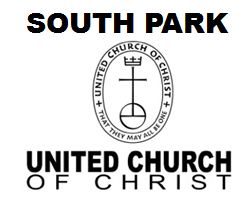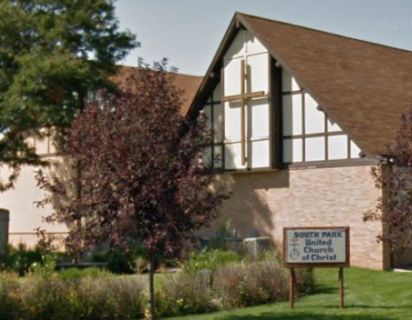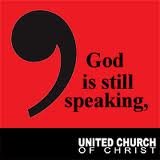|
|
Statement of Faith We believe in You, God, the Eternal Spirit, Father of our Lord Jesus Christ and our Father, and to Your deeds we testify: You call the worlds into being, create persons in Your own image, and set before each one the ways of life and death. You seek in holy love to save all You judge people and nations by In Jesus Christ, the man of Nazareth, You have come to us and shared our common lot, conquering sin and death and reconciling the world to Yourself. You bestow upon us Your Holy Spirit, creating and renewing the
Church of Jesus Christ, You call us into Your Church, to accept the cost and joy of discipleship, to be Your servants in the service of others, to proclaim the gospel to all the world, to resist the powers of evil, to share in Christ's baptism and eat at his table, to join him in his passion and victory. You promise to all who trust You:
and eternal life in Your realm which
|
 |
|
|
ABOUT US Past and Present The history of the
United Church of Christ is a history of people coming together to
put faith into action. One of our most significant ancestors in
terms of continuing influence on our denomination and shaping of
American history is the pilgrims of New England. This Puritan sect
desired to express their faith fully, so they left Europe to form
the Massachussetts Bay Colony. While in Europe, their uncompromising
positions made them known as the Puritans and lead to war and
conflict, but in the colonies, they discovered a need to cooperate
with other Puritans and even Native Americans and extending "the
right hand of fellowship" to each other would lead to the formation
of the Congregational Denomination. Early in American
history, not long after the Revolutionary War, there was a movement
of Christians who questioned the compromising stances that various
Christians were taking towards slavery, the value of the Protestant
denominations that were forming and resulting from the wars of the
Reformation period and even the value of Dogma as a standard for
Christian membership. They said that it is Christian behavior that
should be the standard of membership. This group called themselves
simply the Christian movement. They would join with the Pilgrims to
become the Christian Congregationalists. During the 19th
century, many groups immigrated to America from Europe. In
particular for our history, German settlers came seeking new
opportunities and freedom to practice their religion consistently
without the vaguaries of political control. The Lutheran influenced
group of these settlers would call themselves Evangelicals and the
Calvin influenced groups would call themselves Reformed. These two
predominantly German groups would eventually become one
denomination. The present form of
the United Church of Christ which came into being in 1957 with the
union of two Protestant denominations, the Evangelical & Reformed
Church and the Congregational & Christian Churches. The United Church
Of Christ (UCC) is founded on individual freedom of conscience, and
is open to a wide diversity of ways to understand, practice and
nurture our faith. We welcome all people as Jesus welcomed all who
came to him. The barriers of class, race, ethnicity, sexual
orientation, gender and political affiliation dissolve in the
presence of the the living Christ. As the hymn says: 'In Christ
there is no East or West.' As Reverend John
Robinson, one of the original Congregationalists, said to the
Piligrims as they set sail for Massachusetts Bay, "God hath yet more
light and truth to break forth from God's Holy Word." The Congregational
Church led the Abolitionist movement, believeing that slavery was a
sin. We ordainded Antoinette Brown, the first woman to full ministry
in 1853, We trust God's unconditional love that calls us from
bondage to the promised land, from isolation to community and from
despair to hope. We believe in the power of conscience, that 'still
small voice' that Elijah heard so many years ago. We believe in an
enlightened community and work together for the greater good. We
believe in the forgiveness of sins and in the fulness of grace
through the life, witness, teachings and presence of Jesus the
Christ. We believe that the teachings of Jesus Christ embody the
true spiritual authority of the church. We believe our church should
be useful in our community and in our personal lives.
|


